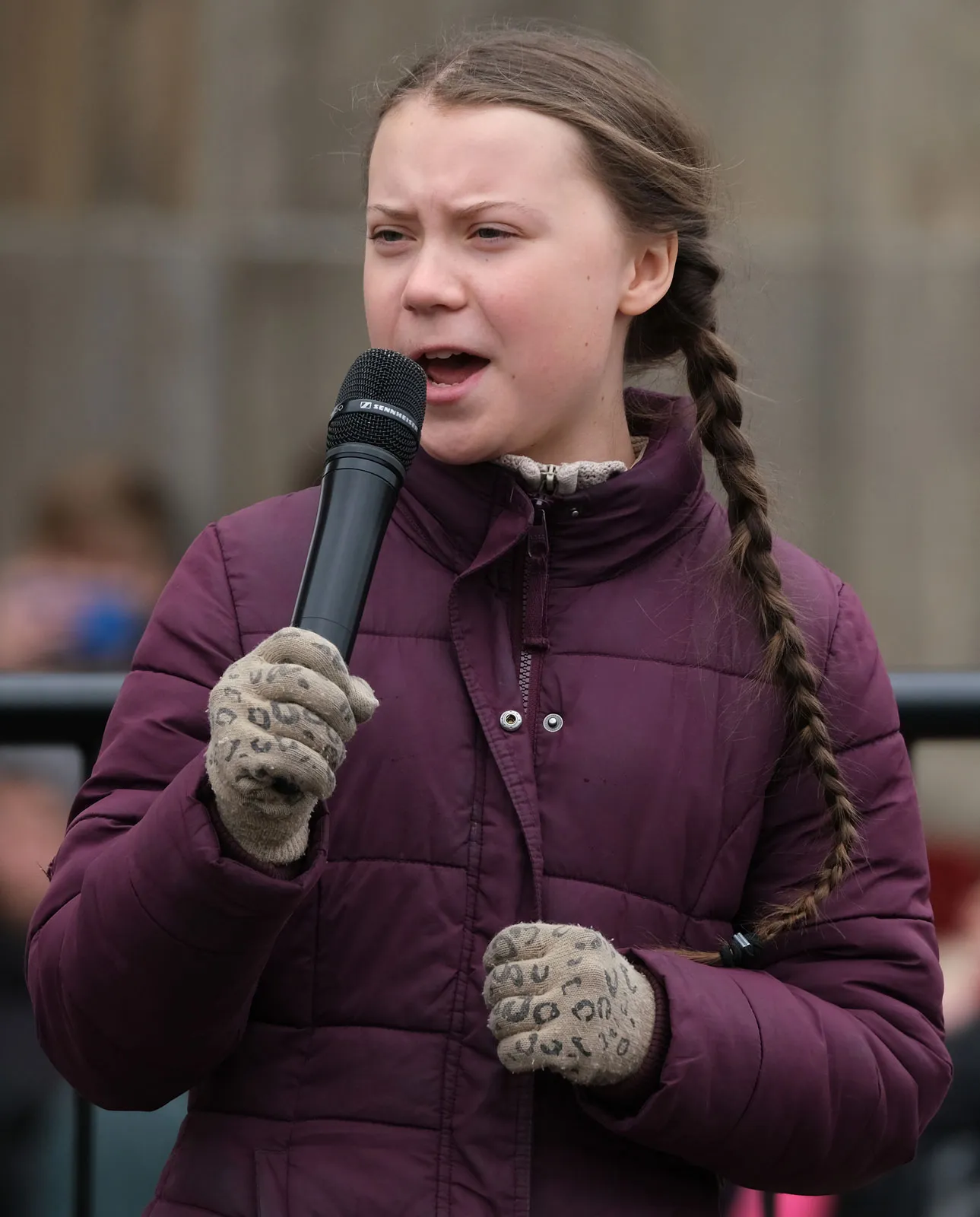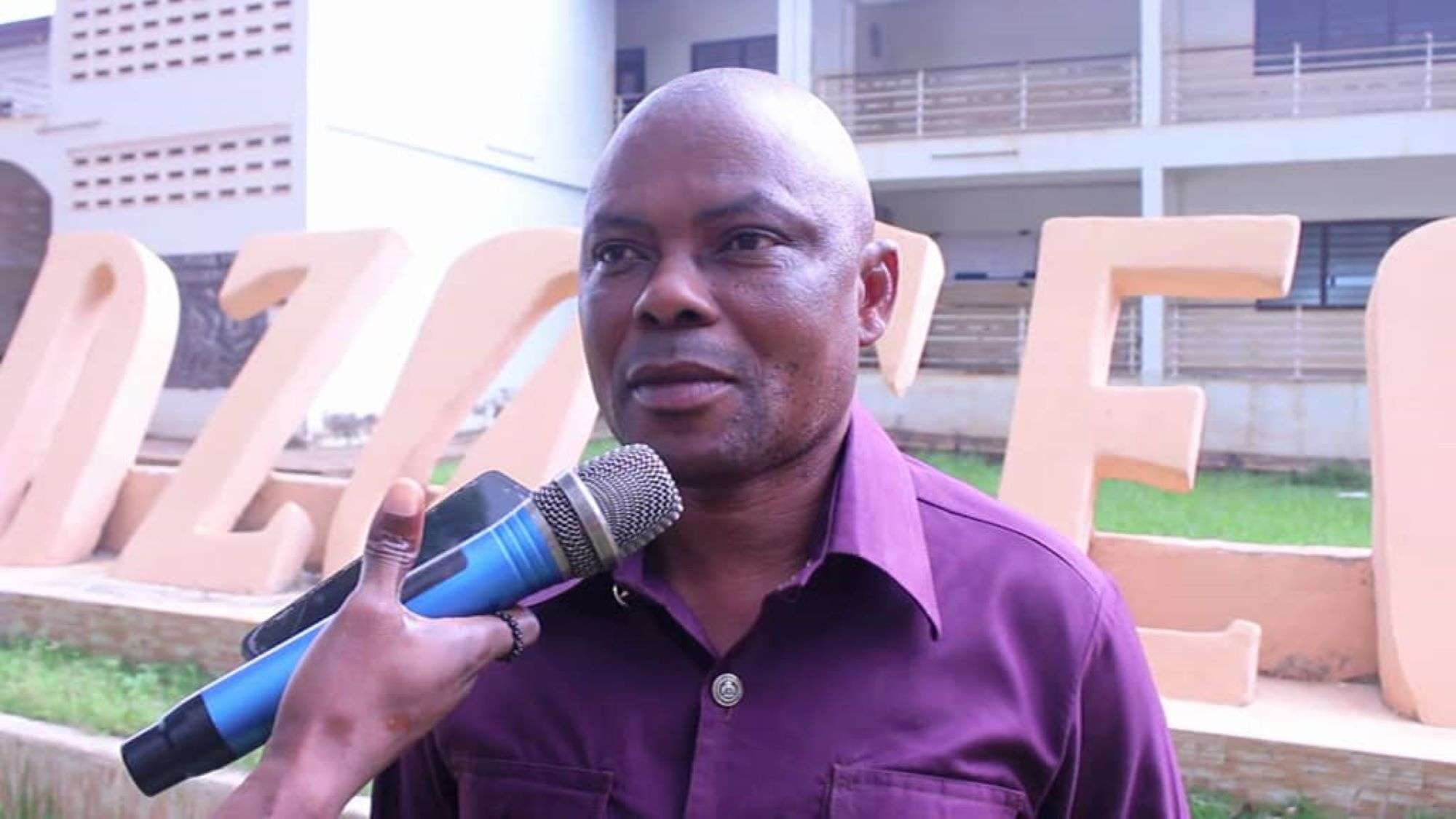There are a lot of movements, campaigns on-going around the world for or against a particular subject or concern ranging from Climate Change, Clean Air, Gender-based Violence, Female Genital Mutilation (FGM), Human Trafficking, and what have you.
These campaigns or movements keep alive the conversations around them at various levels in society and in the political structure of nations.
For over a decade I have been working with and amongst children, and one of the things children love is to have people they look up to come to them, and I must say that this is not something with only children but with people of ‘all ages’.
Human beings, ‘all living things’, like to look up to someone who has qualities they admire. This could be for direction in life, motivation, education, emotional and or psychological support.
Over the last two (2) years I have taken keen interest in conversations surrounding Climate Change and Clean Air. But for the sake of this article I will limit almost everything to Clean Air, however, I may use them interchangeably. Over this period there are three concerns that I have seen or heard people raise.
The first is that, the climate change and clean air conversations are limited to just a few people at the top or those who are exposed to the subject. People in rural or some deprived areas don’t get to sit In meetings and make contributions to conversations. Yet they are the ones who get affected the most by these problems. So there is the need to expand the conversation and get more people on board.
Language barrier is another challenge which slows down the pace of many campaigns and movements. Recently, I was part of a team of National Security officials who were touring basic schools to educate pupils on the ‘See Something Say Something’ initiative. There were fliers shared with the children and the contents were written in ‘Dagbani’, I was told. Some students and teachers approached the team and pointed out errors in the written content. We may somehow blame it on typos.
AccraKonnect Meet Up On Clean Air Ghana
There is a crying need for Ghanaians and Africans to develop our languages! Teaching and learning in our part of the world would be smooth the day we begin teaching in our local languages, meaning we would have developed it to be scientific enough to teach all the major subjects we have at all levels of our education systems. It will do us a lot of good as a people.
The third and the last one which is a low hanging fruit for us has to do with creating ROLE MODELS around campaigns and movements. At the last AccraKonnect Meetup on #CleanAirGhana, organized by GhanaThink at Barcelos, Accra Mall, there were 2 young Senior High students who joined the conversation. And one of the things they suggested in reaching out to young people is using some celebrities in the awareness creation process, that can attract a lot of the youth. Fair point!
Recently I was at a public talk with a U.S Government Official at Legon who came to speak on how the United States is partnering with Ghana and Africa to address environmental concerns such as air quality, ocean conservation, water management, and sustainable fishing.
The guest speaker was Jennifer R. Littlejohn, and after her speech Prof. Christopher Gordon, who is an Environmental Scientist, shared his thoughts on how these partnerships can be enhanced. One of the points he made was regarding how celebrities could be introduced into some of these campaigns and the name he mentioned was Megan Thee Stalion, an American rapper. I thought that was interesting coming from someone like him.
I am sure by now many have heard about Greta Thunberg, the young lady who is leading the charge on Climate Change amongst children and the youth. She is a really brave lady and as she has started we can be sure that she continues on this journey for a long time to come, if not for the rest of her life.
You know it is easier to give someone like Stonebwoy $10,000 or more to make him an ambassador for Climate or any campaign at all. You can give Megan some $100,000 to promote a certain campaign as well and she may not reject it but these people are built around businesses.
They shall not be as dedicated to these campaigns if it doesn’t bring some good financial benefits or gives them more exposure. They look at everything from a business point and nothing else. After sometime when personal interest begins to override what they have been tasked to do, they will abandon the project. No one will fault them because they built their brand and reputation with their own sweat to do business.
I know there are young people or even matured people who are active players in certain industries who with some support can be dedicated ambassadors for campaigns and movements. These people become role models who will promote certain ideologies and beliefs that will sustain our environment, lives, and future generations.
The use of celebrities as role models for campaigns which aren’t business-focused is not really a prudent investment. When we create role models from within the ‘group’ or ‘society’, there are a lot of opportunities and benefits that will work well for all.
Availability of Role Models: We can be sure to always have the role model available when and where they are needed. Oftentimes, these persons within the society are committed to the campaign and their performance can be monitored if they are tasked to give quarterly or regular reports. In addition, because they are also looking for ways to attract popularity for themselves there is a likelihood they will go the extra mile.
Relevant Knowledge: there is an almost 100 per cent certainty that whoever is picked or groomed from within the society has adequate knowledge on the topic or subject or campaign for them to make meaningful contributions at all levels. And in most cases these people do not just have knowledge but have scholarly understanding of the matters when a celebrity may not have in-depth knowledge on the matters. And there are times when they are torn between their celebrities status and being politically right. I believe role models can sidestep this. Role models for their own good will be committed to learning more on the developing matters in the campaign than others.
Engaged Recruitment: Celebrities can sometimes attract a lot of people to campaigns and movements but oftentimes newly recruited people may leave the moment they realize they are not always going to get the chance to engage with what attracted them in the first place. But when there is an ‘in-house’ Role Model, they are mostly available to engage the recruits regularly and this keeps the energy for people to want to work more to step into those role when the need arises.
Relatively Less Costly – Even though it may cost more to groom a role model from scratch or a very low point, and the amount of time involved to get them to where we may want them to be in order to command celebrity status; it is beneficial in the long term. This is so because the campaign or movement would have trained someone who is committed to the course for a ‘life-time’. The role model would be seen and considered as someone who ‘lives and dies’ for the campaign.
5- Committed Role Models: this point was mentioned in the previous one but I would like to add more in this part. I believe the more role models that are created from within the society, the more same will be committed. And for that matter we can have our children look up to people who are not ‘celebrities’ or ‘entertainers’ but people who are known for championing specific courses or initiatives.
It is understandable that celebrities are like low hanging fruits that we can throw money at to attract numbers, but if we desire to build organizations to last beyond a life-time, then grooming role models from within a society is the way to go. And when we are able to do this in a way which is properly targeted, we may be taking a lot of people out of poverty in the process. We could be exporting Role Models across Africa and the world.










